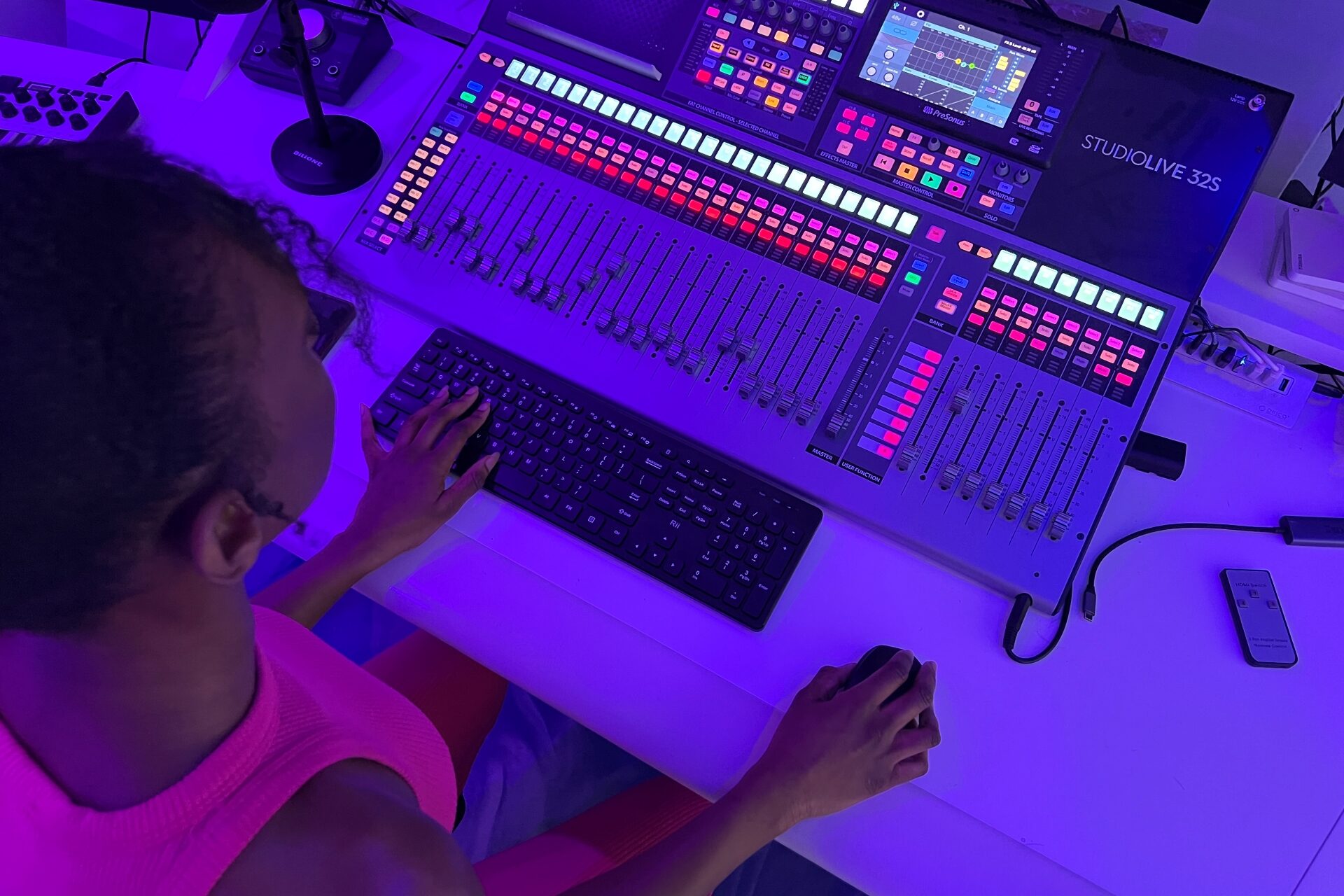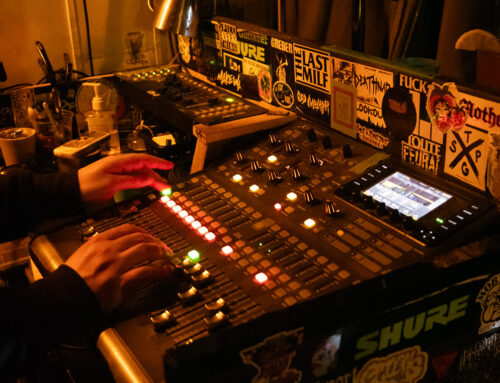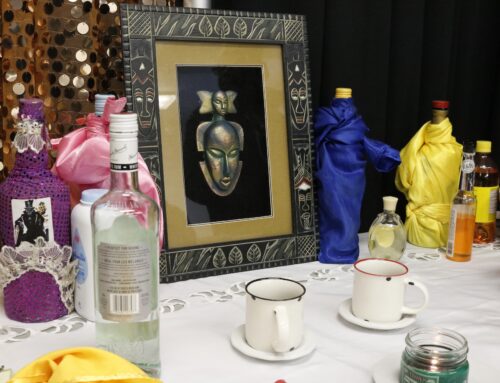BY Leana Schulz & Victoria Blanchette
Tisha Kofi is a Montreal artist who found her musical calling during the COVID-19 pandemic and now makes her own music.
“I don’t use AI for my music. To be honest the thought had never crossed my mind and I probably never will. I enjoy the process of creating music way too much to give it up,” she says.
Kofi says she doesn’t see the necessity for artists to use AI.
“Music has always been an expressive means of communication that conveys emotions and personal experiences,” she says. “Relying on AI would take away the authentic and raw nature of music, the part that touches your soul and makes you dance or cry or get all hyped up.”
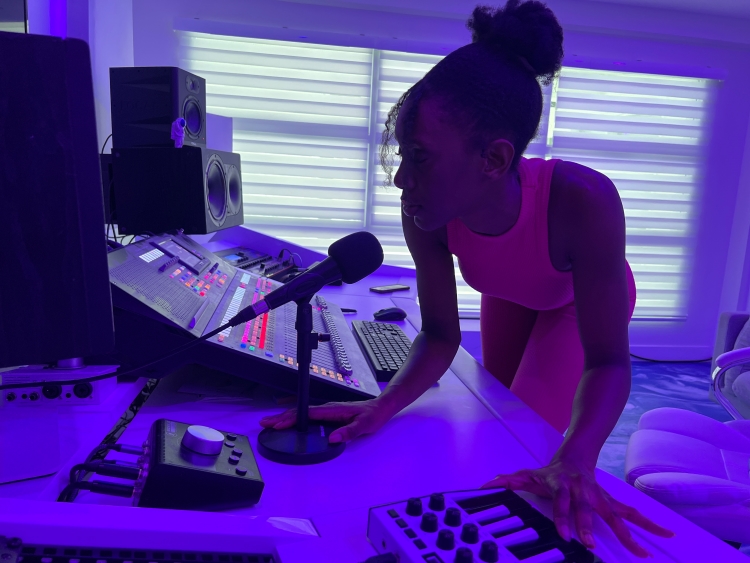
Kofi working on her new single “time and effort” at Studio 760. Photo by Leana Schulz.
Kyle O’shea is the CEO of Montreal’s On a Roll Records. He has been overseeing and managing many diverse clients for many years. He says a few of the artists on his label do dabble in AI.
“Some of my clients may use it in house music, techno, hip hop a little bit,” he says. “I’m indifferent about it, I think new things are cool and should be explored. Iit doesn’t necessarily mean that it’s going to be a positive or negative effect, I’m open to it.”
But he does believe AI can be used to excess.
“I think it might diminish the value of the music being created if it’s fully relied on,” he says. “I understand a lot of people have fear around it but but down the road it will become its own genre of music and own art form because even though its AI created its still put together by a human.”
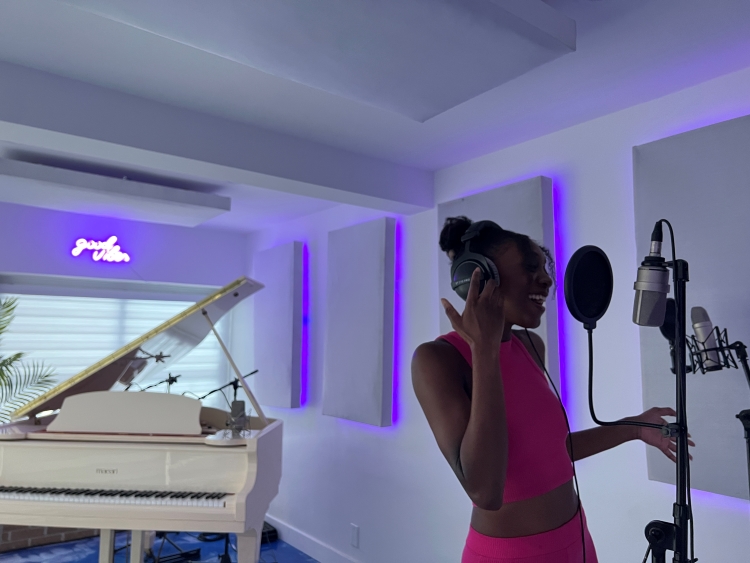
Tisha Kofi singing and recording her new single “time and effort” at Studio 760. Photo by Leana Schulz.
The legal repercussions of doing so could be much more complex than one may think.
“Intellectual property protects what human beings create with their minds and what they may want to have exclusive rights for,” says lawyer Francis Langlois. “The state will grant exclusive rights for the person who has come up with it in the first place… If people don’t have protection for what they create they might not be incentivised to create more.”
Langlois is an associate at the McCarthy Tetrault law firm. They provide services on different aspects of artificial intelligences.
“Different players, some own sound recordings, need people to record the song, some own sound recordings, fixation of ownerships, owns composition rights of her songs and could re-record her songs still with a lot of uncertainty with AI in music rights,” he says.
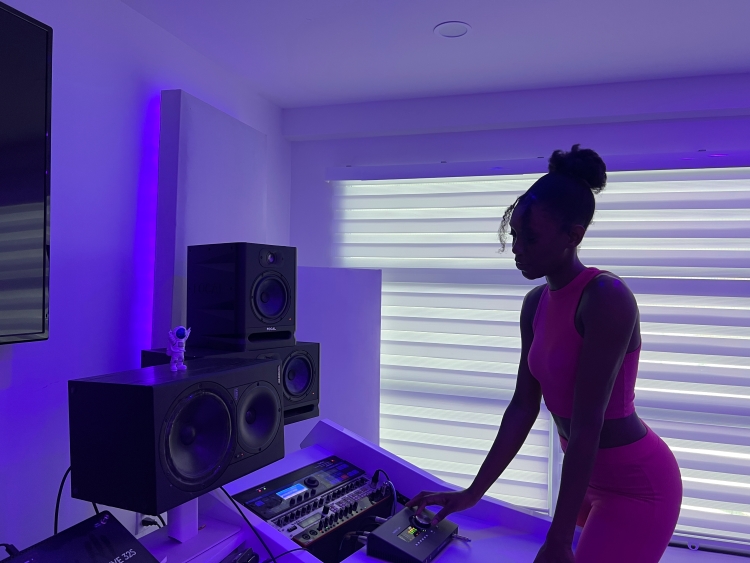
Tisha Kofi producing her own music. “I’m passionate about sharing my love for music to the rest of the world,” Kofi says. Photo by Leana Schulz.
In Canada, the only applicable law is the copyright act that dates back to 1921.
Since AI is new, there are no legal precedents as to how the law should be applied. That should change when some current cases go through the courts.
As AI continues to evolve, its influence on the music industry will only grow, raising important questions about creativity, ownership, and authenticity. While AI may offer new tools for innovation and artistic expression, the challenge lies in maintaining the raw, emotional depth that makes music so powerful.
The use of AI in the Montreal music industry: are artists implementing it in their music production or not? Video by Victoria Blanchette.
O’shea believes that while AI has the potential to evolve into its own art form, it’s crucial to approach it carefully—using it as a tool to enhance creativity rather than undermine it. He stresses that there’s something uniquely human about storytelling, shaped by emotion, life experiences, and personal perspective, which AI can never fully replicate.
A look into the evolution of AI in music. Interactive presentation by Leana Schulz.
For him, the key is to use AI as an advantage, complementing human creativity instead of replacing it.
“AI should enhance the creative process, but the depth and authenticity that humans bring to art are irreplaceable.”
